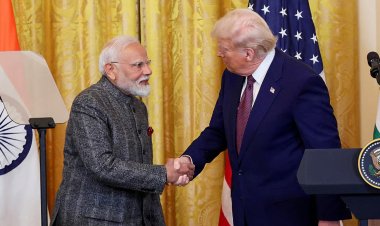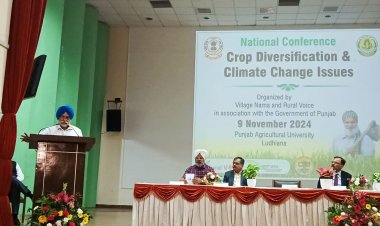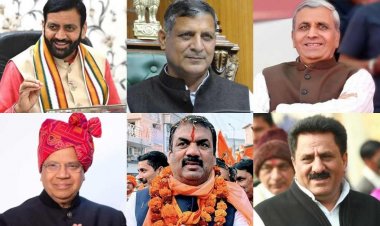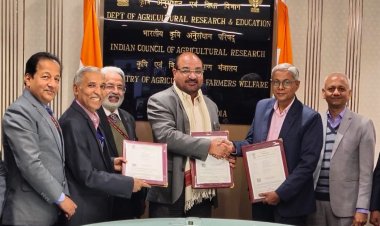Why Should Bihar Get Special Category Status?
The Raghuram Rajan Committee, in its report on "Evolving A Composite Development Index", talks about an index of under-development, wherein Bihar ranks second, next only to Odisha, thus underlining the immense need that exists in the state to bring in more funds to assist the task of development.
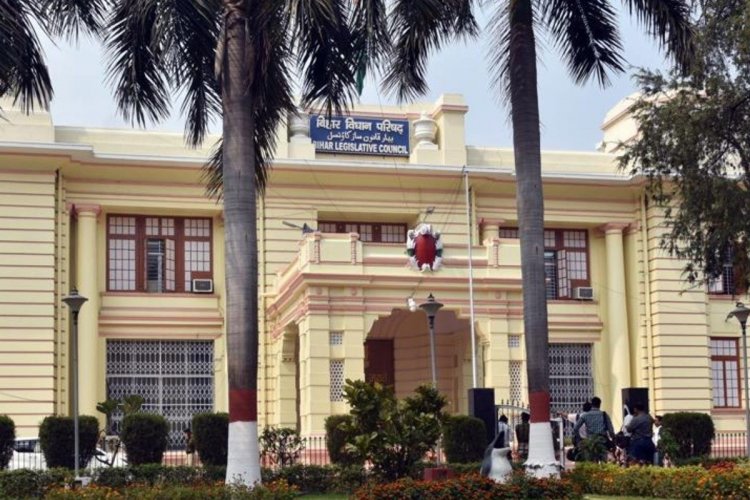
There are presently 29 states and seven union territories in India. Based on the President of India’s Finance Commission’s recommendations, all of these states and union territories receive a percentage of the federal government’s revenues every five years. Presently, ‘Special Category States’ in India are a group of eleven economically impoverished hill states that share international boundaries. These are: Manipur, Meghalaya, Mizoram, Arunachal Pradesh, Tripura, Sikkim, Uttarakhand, Himachal Pradesh, Assam, Jammu & Kashmir and Nagaland.
To encourage investment, states with Special Category Status are excluded from excise duty, customs duty, corporate tax, income tax, and other taxes. To help these states, the Centre bears 90% of the state spending (provided as a grant) on all centrally-sponsored initiatives and foreign aid, while the remaining 10% is handed to the state as a zero-interest loan. If a state has unspent money at the end of a fiscal year, it does not expire and can be carried forward to the next fiscal year. These States are given priority treatment when it comes to receiving central funds, which encourages development projects to their jurisdictions among other benefits.
Notably, when India attained independence, the country, as a whole, was underdeveloped. Income was distributed unevenly across the regions. Balanced development of all the regions was made an explicit government objective. It was argued that if the market mechanism was given a primary role and the role of the state was restricted, the country’s economic development would remain confined to selected pockets that were relatively better off, resulting in further widening of inequality. Therefore, active state intervention was envisaged to reduce the disparities. The mechanism employed to achieve these goals was the transfer of resources from the Centre to the states. These transfers have been channeled through the Finance Commission and the Planning Commission.
The level of development of a state is likely to be the consequence of a complex set of historical, cultural, and sociological factors. The idea of ‘Special Category Status’ for some states was introduced not only for devolution of central funds to states, but to grant a few other facilities (notably, tax concessions) to promote development in those disadvantaged areas and underdeveloped states.
The Raghuram Rajan Committee, in its report on "Evolving A Composite Development Index", talks about an index of under-development, wherein Bihar ranks second, next only to Odisha, thus underlining the immense need that exists in the state to bring in more funds to assist the task of development.
It may be highlighted that Bihar has been grappling with the development deficit for nearly three centuries. Some of the more important factors for remaining underdeveloped during the period were as follows – (1) ever since merger of Bihar in Bengal province in 1765, the former was the worst funded province of British India; (2) in the 1st decade post independence, though Bihar attempted to abolish the draconian Zamindari system, but it could not get implemented with full zest; (3) the freight equalization policy adopted by the Government of India in 1952 destroyed Bihar’s industrial ambitions; (4) there was political instability of the State from 1961 till 1990, which resulted in Bihar’s condition going to the dogs; (5) “Jungle Raj” during the next 15 years (1990-2005) brought the condition of the State at its nadir; (6) the bifurcation of the State – Bihar and Jharkhand – in November 2000 took away much of the mineral base of the State and revenue-generating assets, etc.
In view of the foregoing one would arguably say that in order to bring out from financial quagmire, Bihar needs the ‘Special Category Status’ to trigger economic resurgence, with private and public investment coming in a big way. However, the criteria used for awarding 'special category status' to states is at present based on hilly and difficult terrain, low population density and/or sizable share of tribal population, strategic location along borders with neighboring countries, economic and infrastructural backwardness, and non-viable nature of state finances. Such criterions have kept Bihar away from the much needed 'special category status' and need to be revisited. This needs to be reviewed.
Ever Since Nitish Kumar came to power, he has been demanding ‘Special Category Status’ to Bihar. This would empower Bihar to attract more Industrial Houses, foster rapid industrialization creating speedy money flow and a bouquet of employment opportunities. Bihar has an abundance of manpower. The State only lacks infrastructure. If Rapid Industrialization kicks off in Bihar, the Central Government would, in fact, earn much more in revenues compared to what it loses by granting special status to Bihar. This demand has also been backed by the Associated Chambers of Commerce and Industry in India (Assocham) so that Bihar could get an investment of Rs 2.5 lakh crore over the next five years to develop infrastructure and social sectors.
Bihar has been largely dependent on the public sector investment for infrastructure development, but the gap cannot be bridged merely with state funding. The only possible way out is to encourage private investment in infrastructure development. The grant of special status would come handy to boost investors’ confidence in Bihar. Private investment would fast track infrastructure and industrial development which will automatically impact education and health sectors, besides generating higher per capita income and improving the purchasing power of the people.
The present Bihar Government under the stewardship of Mr. Nitish Kumar, who has been in power for over the last around 19 years w.e.f. 2005, has undisputedly taken the state on a trajectory of unprecedented high economic growth. Implementation of his dream plan ‘Saat Nishchay 1’ and ‘Saat Nishchay 2’ has brought about sea change in Bihar. Of course there has been loss to state exchequer due to sale-purchase ban on liquor, due to firm commitment of the Hon’ble Chief Minister Nitish Kumar for the greater good of the society in general, and downtrodden in particular. At the same time, a serious attempt has been made to compensate for the financial loss by encouraging other sectors, more importantly, giving a boost to the tourism department, and has been successful to a great extent.
However, in spite of Herculean effort to bring out the state trapped in financial sieve, it has become abundantly clear that the state cannot offset the huge development deficit compared to the rest of the country even if it grows at this pace. It is this fact which has inspired the demand for 'Special Category Status' – the policy measure to propel Bihar to come closer to national average on various development parameters. The demand by Government of Bihar is backed by unanimous resolutions in Bihar Legislative Council and Bihar Legislative Assembly. Besides, Smt. Nirmala Sitharaman, Hon’able Minister of Finance of the Government of India, during her sojourn to Bihar for recent election campaign, had assured that the NDA government would seriously take up the issue of granting 'Special Category Status' to the State. On the other hand, the Centre should not forget that no other state has faced the level of economic predicament Bihar has undergone since last three centuries. It is high time that the Centre awards Bihar the much needed 'Special Category Status' for the people of Bihar and overall development of the country which is moving towards Viksit Bharat.
(The writer is retired Professor & Head, P.G. Dept. of Philosophy, Patliputra University, Patna, Bihar; Former Pro-Vice-Chancellor, B. N. Mandal University, Madhepura, Bihar & Former Visiting Professor as ICCR Chair at Mahatma Gandhi Institute, Moka, Mauritius)



 Join the RuralVoice whatsapp group
Join the RuralVoice whatsapp group



















